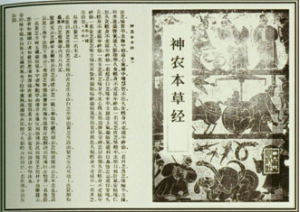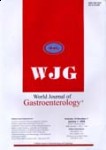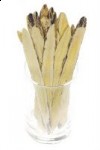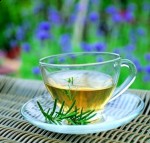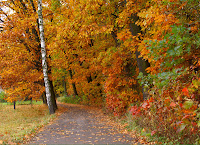Most plants and herbs are naturally “Bio-Active” meaning they are digestible by humans and our gut (our large and small intestines). Recognizing the chemicals nutrients from plants is not as easy for your body today because often we eat and swallow herbal supplements with tons of “non-bio-active” fillers.
Just like your eyes understand these words because you have been trained in English language, your intestines can decode the language of plant chemicals that come through our guts. But when man-made chemicals arrive, i.e. fillers in herbal supplements such as magnesium stearate, a man-made chemical, then bio-activity slows to a crawl. Your body is not good a deciphering these new man-made chemicals that is has never seen before. It’s like trying to read English without ever learning the alphabet. You simply have no idea what they letters mean.
On the contrary, when herbs and plants are ingested,the curative are more powerful because all the plant chemical constituents become more BIO-AVAILABLE to our human genome. Our bodies, for thousands of years have ingested these chemicals and our bodies can decipher plant chemical make-up.
How do we know this? The research is overwhelming. Chemical pictures via computer programs using high performance liquid chromotography reveal marker chemicals in various herbs. These chemicals, for example, astraglaside #4 in Astragalus (huang qi) is higher in concentration in after boiling astragalus (huang qi) in a pot of hot water for 30 minutes than when testing the raw root material.
If we take it a step further and we cook the herbs in hot water boiling process and start to break down the fibrous plant material the plants will release even more chemical constituents with curative powers. The ancient Chinese knew this and therefore always boiled their herbs and drank the water as a tea, rather than eating the roots or leaves raw.
This tradition survives today. Boil your herbs and enjoy freshly released bio-active compounds and bio-availability of a matrix of healing herbal compounds. If you don’t have time to boil your own, Pacific Herbs line of herbs in granules have already been cooked and concentrated and have all the bio-active compounds you need to stay healthy. Check out the easiest way to get Bio-Active herbs here.

 Using traditional Chinese Medicine to heal gut issues
Using traditional Chinese Medicine to heal gut issues seeing today. Would you believe, this is not the first time in history that doctors needed to find a cure for the gut? A cornerstone of Traditional Chinese Medicine is a healthy digestive tract. Solutions for digestive health were pondered over 800 years ago when many TCM books and theories were first written on the importance of the stomach, pancreas and the entire digestive system. Chinese /Eastern medicine approach is very different than the Western medicine approach. Eastern medicine relies upon several holistic healing methods including healing cuisine, herbs and acupuncture and lifestyle modifications.
seeing today. Would you believe, this is not the first time in history that doctors needed to find a cure for the gut? A cornerstone of Traditional Chinese Medicine is a healthy digestive tract. Solutions for digestive health were pondered over 800 years ago when many TCM books and theories were first written on the importance of the stomach, pancreas and the entire digestive system. Chinese /Eastern medicine approach is very different than the Western medicine approach. Eastern medicine relies upon several holistic healing methods including healing cuisine, herbs and acupuncture and lifestyle modifications. 